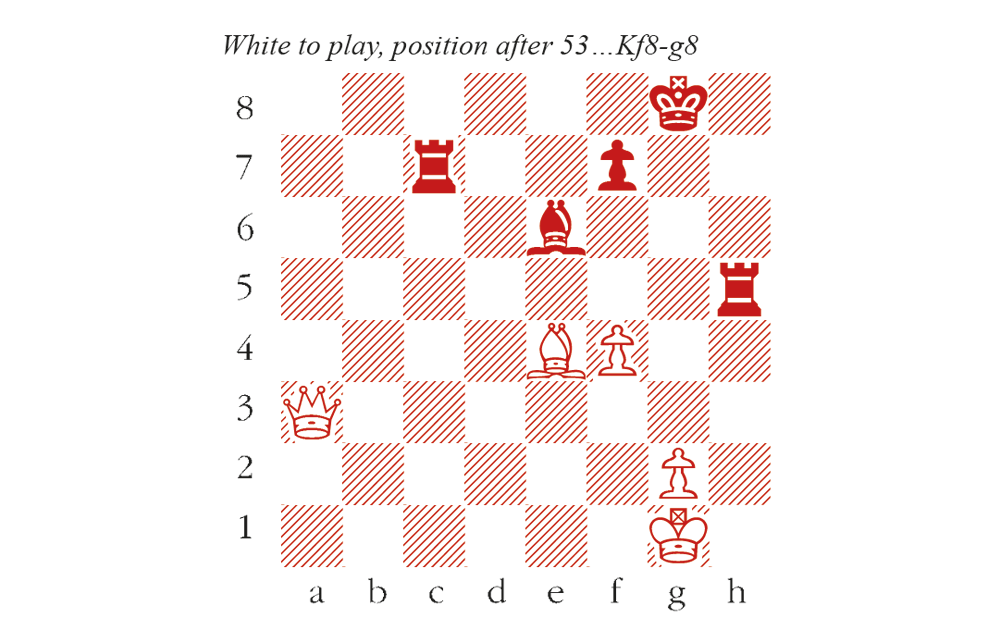‘OK, there is a body with a knife there, and the police come and say nothing happened… You have to find who, why, what, but it happened, don’t pretend that it didn’t happen!’ Vladimir Kramnik deployed that analogy about the world of online chess, which he sees as riddled with cheating.
Cheating happens. Once in a while, I get demolished in a casual online game in a manner that leaves no room for doubt that my opponent’s moves were silicon-assisted. Chess.com, the platform that hosts the biggest online events, has a dedicated Fair Play team to monitor cheating, and their checks have led to over a million account closures in 2023 (0.6% of the total number).
Nevertheless, Kramnik clearly believes that Chess.com and the online chess community are blind to the scale of the problem. His concern is legitimate, since nobody really knows how much of the iceberg lurks below the surface. So the former world champion has turned to a kind of online vigilantism. His modus operandi is to post statistics which don’t directly accuse but insinuate that various players’ results are too good to be true.
Hunting for statistical anomalies in performance is a valid approach. Professor Kenneth Regan, a prominent anti-cheating expert, approaches that task with an underlying model of how likely a player of a given strength is to select certain moves. By contrast, Kramnik’s figures often seem cherry-picked, and when he claims to have consulted mathematical experts, the evidence is scant. And he blasts it out with a blunderbuss. In a recent interview with the YouTuber Levy Rozman, he claimed, ‘I just look at data, I don’t look at names or anything… There is always a chance that a player is playing fair, but it has to be examined.’ That’s a cop-out: by implicating widely, he convinces nobody. The Czech grandmaster David Navara (perhaps the most unimpeachable opponent I have ever faced) recently felt obliged to publicly defend himself after his name appeared in one of Kramnik’s half-baked lists of data.
Jose Martinez is a 25-year-old grandmaster from Peru, who now represents Mexico. He plays under the pseudonym ‘jospem’ and is another player to have drawn Kramnik’s ire, in part due to his strong performances in Chess.com’s ‘Titled Tuesday’ events in which many world elite players (including Kramnik) are regulars. An enterprising promoter decided to bring the two together for a blitz match in Madrid, dubbed the ‘Clash of Claims’. Meeting in the same room, with arbiters present, and playing a mix of over-the-board and online games, was designed to assuage any concerns over cheating.
Alas, the online games were beset with technical problems where the clocks appeared out of sync with the moves on the board. The match conditions were renegotiated on the fly, reducing the number of games. In the end it was terminated even earlier after yet another technical issue. Kramnik held a slim lead in the over-the-board games, while Martinez was comfortably ahead in the online ones, and led by 14.5-11.5 overall. Martinez emerged with great credit – not only for the scoreline, but also for the equanimity he displayed throughout. It was clear he simply relished his opportunity to test himself against the champion. Kramnik appeared less happy and posted afterwards about ‘VERY HARSH legal procedures coming’. I’m reminded of the wise words ‘Don’t raise your voice, improve your argument.’
Jose Martinez-Vladimir Kramnik
Clash of Claims, 2024 (Game 2, over-the-board)
(see diagram)
Martinez landed a sharp tactic: 54 f5! Bxf5 55 Bxf5 Kg7 56 Qg3+ winning the rook, so Black resigns (55…Rxf5 would not have helped either).






Comments